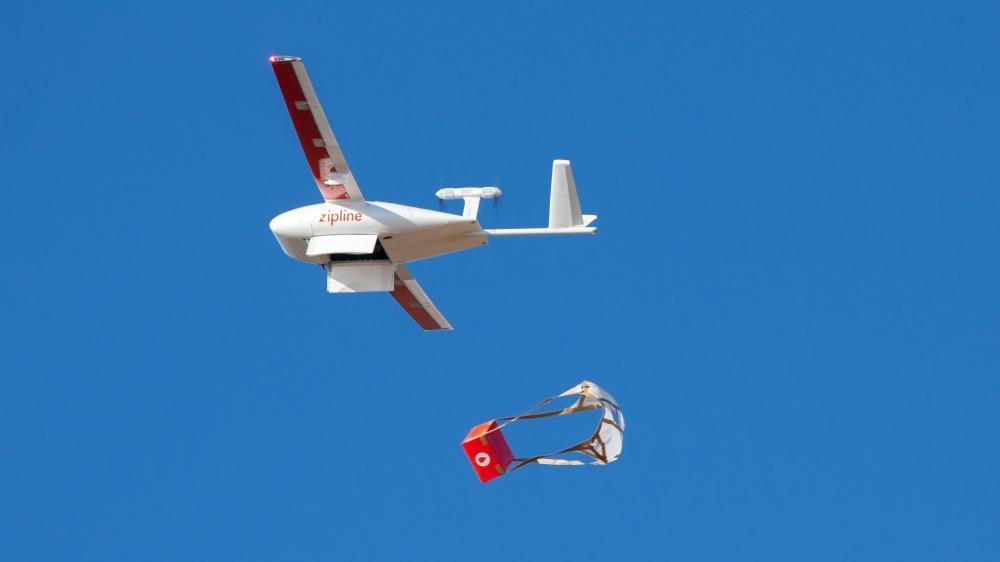Africa-Press – Rwanda. Rwanda is steadily positioning itself as a continental hub for drone technology, with applications spanning health, logistics, defence, and urban mobility.
What began with the use of drones to deliver blood to remote medical facilities has developed into a broader strategy to deploy unmanned aerial vehicles (UAVs) to address multiple issues for national development.
It started ten years ago with Zipline as part of Rwanda’s proof of concept policy where a first commercial drone was launched to improve service delivery in the health sector, by delivering blood to health facilities.
The company, which has since grown to expand operations to different countries across continents, is now preparing to expand into urban logistics, with plans to launch home delivery services in Kigali by 2026. Such services could help address challenges linked to congestion and accessibility in fast-growing urban areas.
Beyond logistics, the government is building capacity in aerospace manufacturing. TRL Space Rwanda, a subsidiary of the Czech-based TRL Group, has established a local engineering team and intends to begin manufacturing drones and satellites in Kigali.
By 2030, the company aims to deliver complete products made in Rwanda, supporting agriculture, climate monitoring, and defence while also creating high-skill employment.
The country has also marked milestones in advanced air mobility. In 2025, the government hosted the launch of Africa’s first self-flying electric air taxi, developed by Chinese firm EHang.
The demonstration highlighted Rwanda’s interest in exploring emerging technologies that could play a role in the future of urban transport.
Defence applications are also part of this trajectory. As Minister of Infrastructure Jimmy Gasore noted, drones are increasingly central to modern security and surveillance strategies worldwide.
The inclusion of defence alongside civilian uses reflects an acknowledgement of this global shift.
These developments are supported by a regulatory and policy framework designed to attract investment and encourage innovation.
Clear rules governing airspace use, combined with infrastructure such as the Rwf13 billion drone operations centre under construction in Huye District, have created conditions conducive for growth in the sector.
The next step will involve ensuring that Rwanda builds sufficient technical expertise and regulatory capacity to sustain momentum. If these efforts succeed, drones may become a practical tool not only for innovation but also for addressing real-world challenges in healthcare, logistics, agriculture, and security.
Source: The New Times
For More News And Analysis About Rwanda Follow Africa-Press






